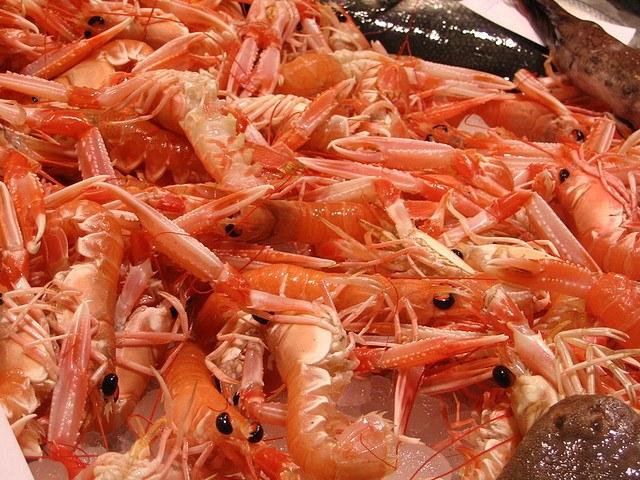
Thailand’s shrimp industry is linked to human rights abuses and even slave labor. The Associated Press (AP) conducted an investigation into the shrimp industry this year and found that migrants work under terrible conditions. Some work 16-hour days peeling shrimp and receiving meager wages. If they try to leave, they are returned and forced to keep working. Some of the shrimp workers are children.
The AP investigation chronicles the story of a migrant shrimp worker and his wife. Named Tin Nyo Win, the man was called No. 31 by his boss -- stripped even of the dignity of being called by his name. The husband and wife “ripped the guts, heads, tails and shells off shrimp bound for overseas markets, including grocery stores and all-you-can-eat buffets across the United States,” the AP reported.
Tin Nyo Win and his wife, Mi San, peeled “about 175 pounds of shrimp for just $4 a day,” the AP investigations found. Five months into forced labor, they decided to run away, but Mi San was captured less than 24 hours later. Tin Nyo Win watched as his wife, who was pregnant, was “dragged away by her hair.” Almost two weeks later, he found her with help from a local labor rights group that prompted police to do something.
After Mi San was found, she was taken to the police who forced her to go back to work, taking her and her husband to another factory. Four days later they were arrested, held on almost $4,000 bail, and charged with illegally entering Thailand and working without permits.
This latest AP story is one of a series investigative reports on the Thai seafood industry. For this story, AP journalists “followed and filmed trucks loaded with freshly peeled shrimp from the Gig shed to major Thai exporting companies and then, using U.S. customs records and Thai industry reports, tracked it globally,” the AP story states. The Gig shed is where Tin Nyo Win and Mi San worked.
Americans love their shrimp and eat 1.3 billion pounds a year, as the AP story points out. And some of the shrimp they eat is a product of forced labor. The shrimp processed by people like Tin Nyo Win and Mi San found its way to U.S. retailers and restaurants like Walmart, Kroger, Whole Foods, Dollar General, Petco, Red Lobster and Olive Garden. The shrimp also made it into the supply chains of well-known seafood brands and pet foods such as Chicken of the Sea and Fancy Feast. The AP sent reporters into supermarkets in all 50 states and found “shrimp products from supply chains tainted with forced labor.”
One of the companies linked to shrimp from forced labor is Thai Union, which has also been linked to tuna from forced labor. Earlier this month, the company announced that, by Dec. 31, it will bring all shrimp processing operations in-house. “The move will provide us with full oversight of all processing stages,” the company said in a statement.
Greenpeace released a report last month on human rights abuses in the tuna industry. The report linked Thai Union “to the darkest sides of the seafood industry: human rights abuses, the wholesale waste of marine life, and the killing of endangered species with destructive fishing methods.” Greenpeace found that, although Thai Union has taken some steps to clean up its tuna supply chain, more action is needed.
Given the size of Thai Union, it has an “unrivaled position to drive positive changes” in both the tuna and shrimp industries, as Greenpeace put it. If the company ensured its supply chain is completely free of forced labor, it would impact Thailand’s entire seafood industry and help bring positive changes to the working conditions far too many workers face.
Image credit: Flickr/S Khan

Gina-Marie is a freelance writer and journalist armed with a degree in journalism, and a passion for social justice, including the environment and sustainability. She writes for various websites, and has made the 75+ Environmentalists to Follow list by Mashable.com.














